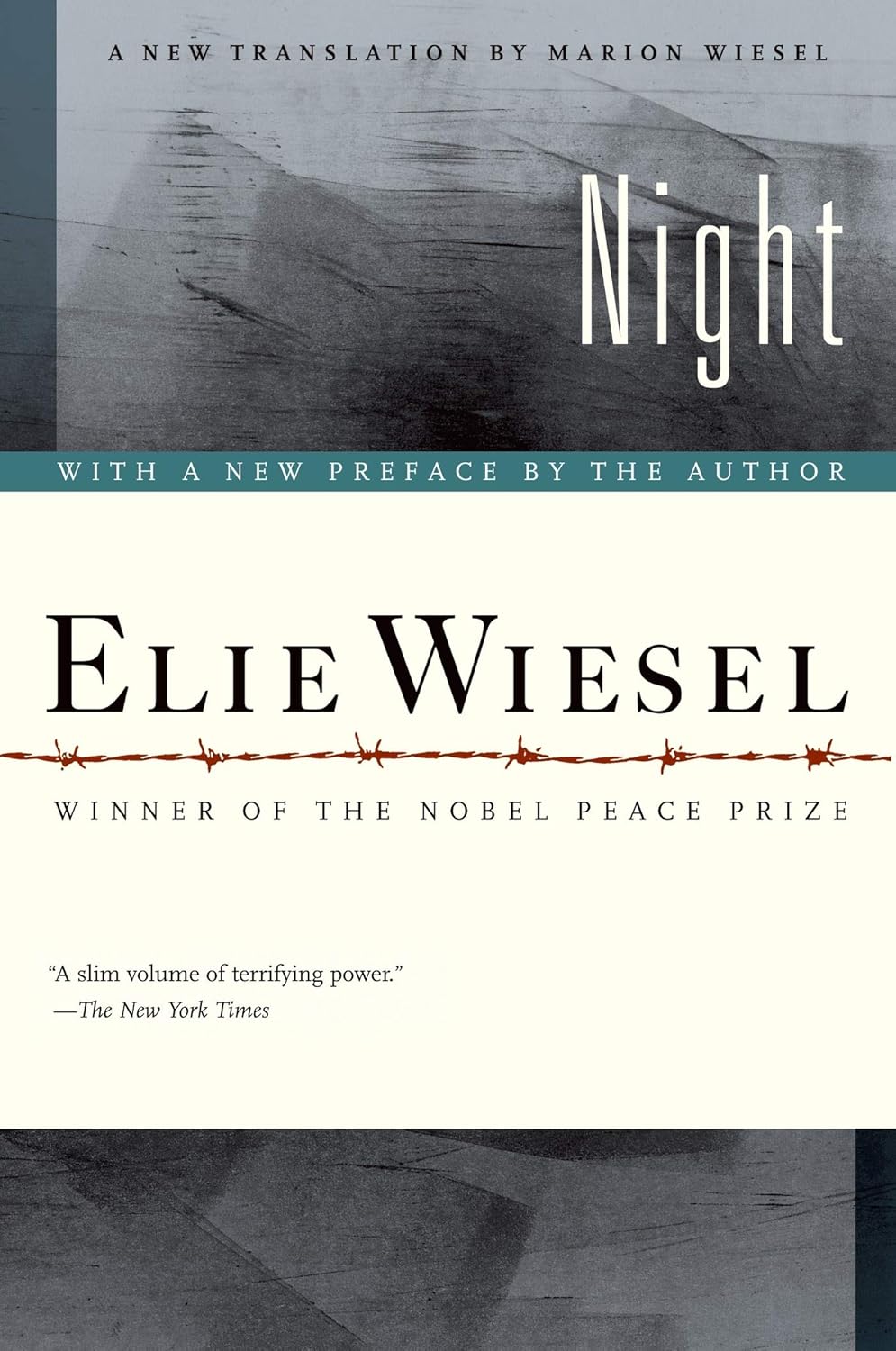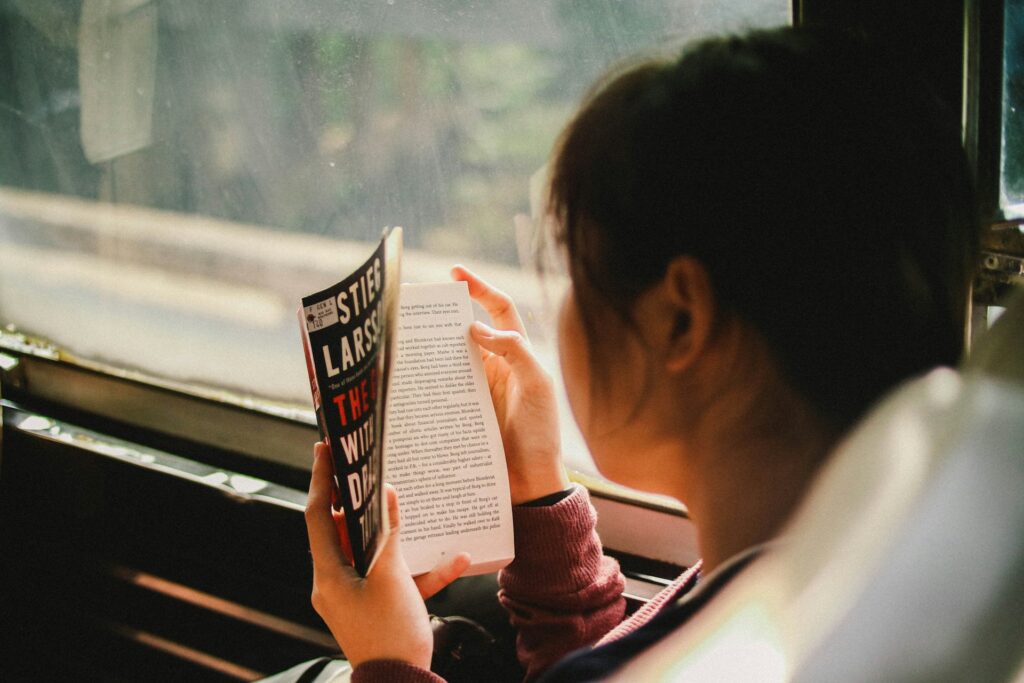Have you ever finished a book feeling like you’ve seen the world in a whole new way? Then you think, “Why didn’t anyone teach me this in school?” It’s a feeling a lot of us have after reading certain books, way after graduation.
These books make up what we like to call a “shadow canon.” They’re super important and teach you so much, but somehow, they’re missing from school reading lists.
It’s not always because they’re banned, though. Sometimes they’re just left out because they’re seen as “too hard,” or when they are taught, the tough parts get watered down.
This list highlights 13 books that’ll have you wondering, “Why isn’t this on the syllabus?” We think the discomfort they might cause is exactly what makes them so powerful; they teach their best lessons through that very challenge.
Contents
- 1 Cautionary Tales: Why Don’t Schools Teach These Dystopian Books?
- 2 The Human Condition: Books That Question Who We Are
- 3 Unfiltered History: More Books Schools Should Teach
- 4 Facing Injustice: Books That Should Be Taught in School
- 5 Essential Skills: The Last Two Books That’ll Make You Say, ‘Why Isn’t This Taught in School?’
- 6 Why We Need These Challenging Books
Cautionary Tales: Why Don’t Schools Teach These Dystopian Books?
These stories use speculative fiction to warn us about political systems and harmful ideas. Their messages can hit pretty close to home, which is why they’re both powerful and sometimes controversial.
Fahrenheit 451 by Ray Bradbury

The main character, Guy Montag, begins to question the world around him and sees a society that has chosen shallow entertainment over real knowledge.
A lot of schools teach it as a story about government censorship, but Bradbury’s real concern was mass media. He worried that TV would kill our love for reading and thinking.
That deeper message feels especially relevant in our screen-obsessed world today. The book has also been challenged because of its violence and strong language.
Animal Farm by George Orwell

The story is a clear reflection of the Russian Revolution and Stalin’s rise to power. Because of its strong criticism of communism, it was banned in the Soviet Union.
Some people also misunderstood it as a criticism of all socialism. To really get the book’s impact, you need to know the history behind it. Without that, it just feels like a simple fairy tale about talking animals.
Parable of the Talents by Octavia Butler

The main character, Lauren Olamina, leads a multi-faith community called Earthseed, which is attacked and enslaved by Christian extremists.
This book should be taught in schools, but is often seen as too intense. Its politics feel very relevant today, and the story includes tough scenes of sexual assault, torture, and child abuse. Its strong critique of religious fanaticism makes it one of the most difficult, but important, books on this list.
Also Read: Want to Be Smarter? Read These 13 Books That Reprogram Your Brain
The Human Condition: Books That Question Who We Are
What does it really mean to be human? These books dig into that question, exploring things like identity, consciousness, and right and wrong. They’re often left out of school because they don’t give simple answers.
Frankenstein by Mary Shelley

This isn’t just a monster story. It’s about ambition, responsibility, and loneliness. It asks whether people are born good or if society turns them into monsters.
Frankenstein can be tough for students because of its old-fashioned language and tricky structure. It also deals with dark themes like grave-robbing and murder. The big questions it raises about science and creation need careful discussion to really understand.
Flowers for Algernon by Daniel Keyes

The story is told through his journal entries, or “progress reports.” We watch him gain a painful new understanding of the world, and then lose it again.
This moving story is often challenged because of its mature themes. As Charlie’s intellect grows, he explores his sexuality, which some parents find inappropriate for school. The novel’s sad ending can also be tough emotionally for younger readers.
The Metamorphosis by Franz Kafka

The story isn’t about why this happened; it’s about how Gregor and his family deal with it. It’s a powerful look at feeling isolated and the weirdness of life. Gregor is still human on the inside, but his new form cuts him off from the people he cares about.
This is a classic example of absurdist literature. The fact that there’s no clear explanation can be frustrating for students. Kafka’s dense writing style and the story’s dark, anxious mood can be tough to get through. But it pushes readers to find meaning in a world that often doesn’t make sense.
See: The One Book That All Americans Should Drop Everything to Read Right Now
Unfiltered History: More Books Schools Should Teach
Textbooks can make history feel far away and dry. These books do the opposite. They show trauma not just as facts, but as real, lived experiences.
Night by Elie Wiesel

Some school boards have called the book “too explicit” because it doesn’t shy away from the brutal reality of genocide.
A big part of the story is Wiesel’s crisis of faith. He struggles to understand how God could stay silent during such suffering. It’s uncomfortable, but facing that discomfort is key to truly grasping the cost of hate.
All Quiet on the Western Front by Erich Maria Remarque

The book’s message is clear: war destroys everyone it touches, no matter their uniform.
The story’s graphic violence is a reason it’s often skipped. It is also told from the German perspective. This forces readers to humanize the “enemy,” which challenges simple, patriotic narratives. Its powerful anti-war message is a vital lesson.
Know My Name: A Memoir by Chanel Miller

This is one of those important modern books that should be taught in schools, but its difficult subject matter makes many schools hesitant. Miller’s strong criticism of legal and university systems can also be seen as controversial.
Facing Injustice: Books That Should Be Taught in School
These books dive right into the heart of American injustice. They’re often controversial because they push us to confront our past and its lasting impact.
The Adventures of Huckleberry Finn by Mark Twain

Huck’s inner conflict is key. He feels that helping Jim will condemn him to hell, highlighting the moral disconnect between society’s laws and what’s right.
The book’s place in schools has been widely debated. A big part of the controversy is its frequent use of the n-word, which can be painful and harmful for students to read.
Some also criticize how Jim is portrayed, arguing that his character relies on racist stereotypes often seen in minstrel shows.
The Nickel Boys by Colson Whitehead

The book paints a heartbreaking picture of racism and abuse during the Jim Crow era. It contrasts Elwood’s hopeful idealism with his friend Turner’s cynical view, leading to a shocking twist.
The book’s raw honesty is part of why it’s often avoided. It includes graphic scenes of physical and sexual abuse.
The story is rooted in recent, documented history, which makes its horrors feel disturbingly real and immediate. It’s a tough, but essential, look at a past that’s not as far behind us as we might think.
Essential Skills: The Last Two Books That’ll Make You Say, ‘Why Isn’t This Taught in School?’
These final two books often get missed for different reasons. One teaches an important life skill, while the other is a classic that’s been hiding in plain sight.
How to Lie with Statistics by Darrell Huff

Why isn’t this required reading? It doesn’t fit neatly into one subject. It’s not quite “literature” for English class. And math classes often focus more on calculation than critical thinking.
Yet, in an age of misinformation, the ability to question data is a survival skill.
Holes by Louis Sachar

Because Holes is often seen as a “middle grade” book, high schools sometimes overlook just how deep it really is. It uses fairy tale elements to explore heavy topics, including the tragic story of an interracial couple killed by a racist mob. It’s a brilliantly crafted novel that deserves more attention.
Why We Need These Challenging Books
All the books on this list have one thing in common: they make us uncomfortable. They challenge what we believe and push us away from easy answers.
That’s exactly why they make you think, “Why isn’t this taught in school?” Because that discomfort is the whole point. Real learning doesn’t happen in a comfort zone; it happens when we grow beyond it.

A good education prepares us for the real world. It gives us the tools to think critically about tough ideas. Skills like spotting propaganda in Animal Farm or questioning data in How to Lie with Statistics are absolutely essential.
We encourage you to read these books and push for an education that’s brave, honest, and willing to tackle the hard questions.